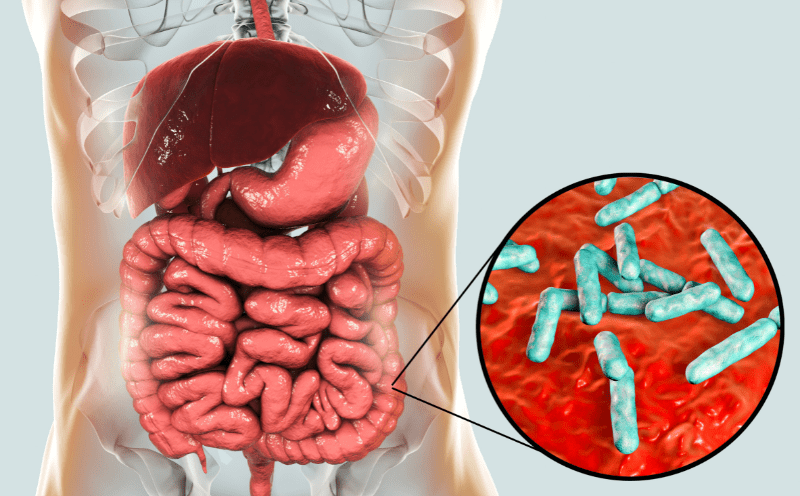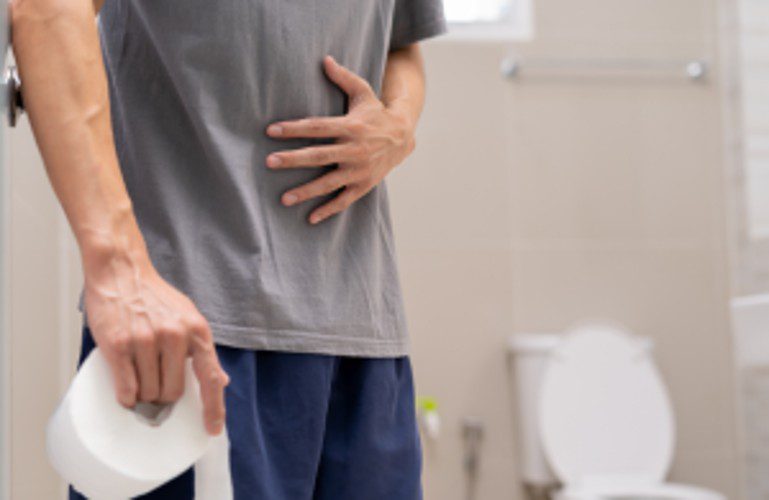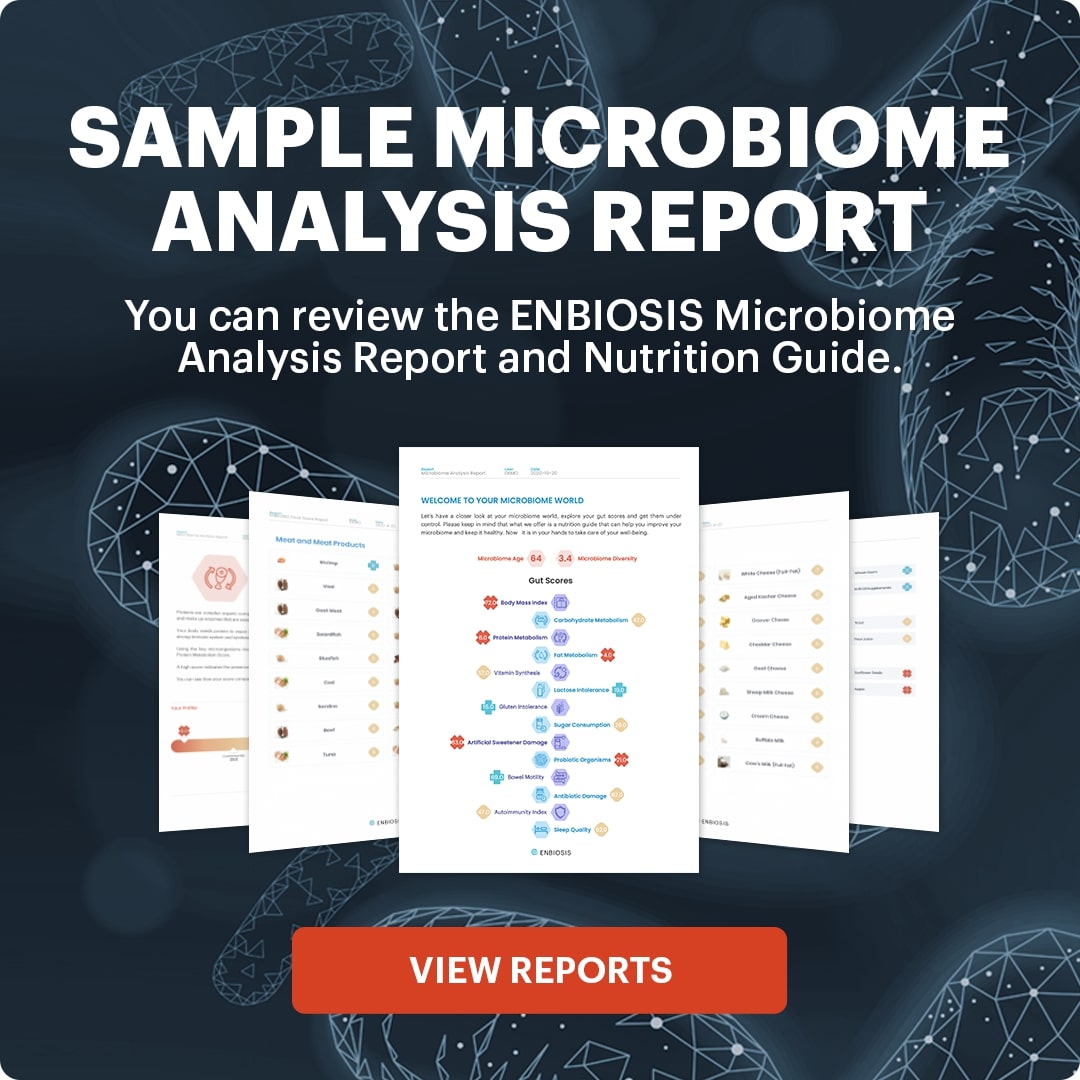Constipation is a common issue. But did you know that it could be related to the bacteria living within your gut? When these microbes get out of balance, it can have a big impact on your digestive health. Join us as we investigate the connection between our gut bacteria and constipation, exploring how gut microbes influence everything from the speed at which our food is digested to the consistency of our stools.
Table of Contents
How Can Our Gut Bacteria Cause Constipation?
Our gut microbiome, home to an immense community of microorganisms, plays a crucial role in aiding our digestion and promoting healthy bowel movements. So, how does it do this? Firstly, gut microbes help to break down complex carbohydrates, proteins, and fats, making nutrients more accessible for our bodies to absorb. This helps to ensure that waste moves smoothly through our digestive system. Secondly, beneficial gut bacteria produce short-chain fatty acids (SCFAs) which help to nourish the cells lining the colon and promote regular bowel movements. Finally, certain gut bacteria produce substances that stimulate the intestinal muscles, enhancing peristalsis (the wave-like contractions that move food through the digestive tract) — thereby reducing the likelihood of constipation.
This is why disruptions in the balance of our gut bacteria — whether due to diet, stress, medication, or other factors — can lead to digestive issues, including constipation. This imbalance, often characterized by an overgrowth of harmful bacteria and a decrease in beneficial species, can slow down digestion and result in harder stools.
Interestingly, researchers have recently found that having specific bacteria in our gut may make us more likely to develop constipation. For instance, in a recently published study, the bacteria Anaerotruncus, Butyricimonas, and Hungatella were shown to be linked with a higher risk of constipation. On the other hand, Ruminiclostridium 9 and Intestinibacter were associated with a reduced risk. Considering that the majority of our stools are made up of bacteria – a staggering 25–54% – it’s no surprise that nurturing a healthy microbiome can help to keep our guts in tip-top health.

How Does the Gut Microbiome Become Imbalanced and How Can We Fix It?
There are many reasons why our gut microbiota can become imbalanced and make us more susceptible to suffering from constipation. For example, some of the things that can reduce the diversity of beneficial bacteria in our gut include: consuming a diet low in fiber and high in processed foods, chronic stress, taking certain medications, such as antibiotics, gastrointestinal infections, or chronic conditions like irritable bowel syndrome (IBS), and having a sedentary lifestyle.
A personalized nutrition approach can be highly effective in restoring gut balance. This involves tailoring dietary recommendations based on your individual gut ecosystem. By analyzing your unique gut bacteria profile, you can identify specific dietary changes that will be most beneficial for you. This is because different strains of gut bacteria respond to various foods in unique ways. For example, some strains thrive on high-fiber foods, while others may benefit more from specific types of prebiotics or probiotics. By understanding your gut bacteria profile, you can make informed choices about which foods to include in your diet to promote a healthy balance.
Recent research supports the effectiveness of personalized nutrition in maintaining a balanced gut microbiome and treating constipation. For example, our own research demonstrates that an individualized diet based on gut microbiome analysis can significantly improve symptoms of functional constipation. In our study, we compared the effects of a customized diet to conventional treatments over 6 weeks. The results were compelling: patients who followed the individualized diet experienced a 2.5-fold increase in complete bowel movements per week and a 4-fold increase in satisfaction scores after 6 weeks. Additionally, 88% of participants following the personalized diet achieved over a 50% improvement in patient assessment constipation–quality of life scores (PAC-QoL), compared to just 40% of those receiving conventional treatments.

How Can Gut Microbiome Testing Help with Constipation?
If you suffer regularly from constipation, it is worth taking a closer look at your microbiome to see if gut imbalances are contributing to your symptoms. This is where gut microbiome testing comes in. It allows you to get a better insight into the composition and diversity of the bacteria in your gut.
Based on your gut microbiome analysis results, you can work alongside healthcare experts to develop a tailored treatment plan. This will help to address any dysbiosis and optimize your gut bacteria.
Furthermore, in some cases, constipation might be a symptom of an underlying condition, such as IBS. Microbiome analysis can help to identify specific microbial patterns associated with these conditions. Once you identify these patterns, you can explore more targeted treatment approaches with your healthcare provider.
Discover How ENBIOSIS Can Help with Gut Bacteria and Constipation
If you would like to find out more about the current makeup of your gut microbiome, then ENBIOSIS is here to help. We offer advanced microbiome testing that can provide you with a detailed snapshot of your gut bacteria health. This reveals the presence of beneficial or harmful microbes and offers functional insights into their metabolic pathways and impact on your digestion.
At ENBIOSIS, our detailed gut microbiome reports provide actionable insights into your gut health. As well as information about the types and abundance of bacteria within your gut, our ENBIOSIS algorithm generates data-driven nutrient and wellness scores. These scores allow you to make informed decisions about your diet and lifestyle. We also provide a disease risk analysis as part of our comprehensive gut microbiome testing. This analysis helps you to better understand how your gut bacteria profile is linked to certain health conditions.
By understanding your gut health and taking proactive steps to improve it, you can effectively address digestive symptoms, including constipation. Contact ENBIOSIS today to discover how our personalized, AI-powered solutions can help you to achieve optimal gut health and overall well-being.


